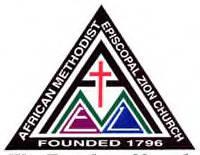 Eliza Ann Gardner is regarded as the “mother” of the African Methodist Episcopal Zion (AMEZ) Missionary Society and was one of New England’s most tenacious defenders of women’s equality in religious matters.
Eliza Ann Gardner is regarded as the “mother” of the African Methodist Episcopal Zion (AMEZ) Missionary Society and was one of New England’s most tenacious defenders of women’s equality in religious matters.
She was born in New York City on May 28, 1831, the daughter of James and Eliza Gardner. When she was young, the family moved to the predominantly black West End section of Boston, where her father enjoyed a profitable career as a contractor for sailing vessels. His work made it possible for Gardner to enjoy a comfortable childhood, but she quickly learned that many others of her race were less fortunate, and was taught that she had an obligation to help them. Her family was active in the local African Methodist Episcopal Church, and their home served as a station for the Underground Railroad, which smuggled runaway slaves from the South to freedom.
Gardner’s interest in slavery intensified because of her education at the only public school for black children in the city, which was taught by abolitionist teachers. As a result, she became acquainted with many nationally famous abolitionist leaders. An excellent student, Gardner earned a number of scholarships. However, as few black women at the time were able to pursue higher education or professional careers, she learned the art of dressmaking to support herself once she finished school.
While working at that trade, Gardner actively participated in church and political issues. In 1865, she began teaching Sunday school, a task she continued for the rest of her life. Her abilities in this area were recognized when she was named the Sunday school superintendent for the black churches in Boston in 1888.
Gardner’s most lasting contribution was the organization of the Zion Missionary Society in New England, which later became known as the Ladies Home and Foreign Mission Society. This group played a large role in the support of black missionaries to Liberia. In 1884, the male-dominated AMEZ Church questioned the appropriateness of the women’s missionary society, as it appeared to be taking a role in what they considered the male domain of religious leadership. Gardner met the arguments in favor of disbanding the group head on, saying
If you commence to talk about the superiority of men … if you persist in telling us that after the fall of man we were put under your feet and that we are intended to be subject to your will, we cannot help you in New England one bit.
Gardner’s defense helped turn the tide and win support for the renewal of the women’s mission society.
Among Gardner’s other contributions were being a founding member, in 1893, of the Woman’s Era Club of Boston, the first black women’s club in the area; serving as chaplain for the National Federation of Afro-American Women convention in 1895; and helping lay the groundwork for the formation of the National Association of Coloured Women at the end of the century.
Gardner, who never married, lived into her 90s as a matriarch of the AMEZ Church. She died in Boston on January 4, 1922.